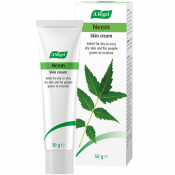An introduction to the symptoms of psoriasis
Psoriasis is a complex condition with a variety of symptoms that can vary depending on what strain of the affliction you are suffering from.
Below is a list of the most common symptoms, which usually arise as a result of the immune system instigating a surge of inflammatory chemicals.
However, sometimes such symptoms can also arise from issues concerning your psychological wellbeing or a secondary bacterial infection.
Dry skin
Dry skin is a common occurrence in outbreaks of psoriasis, usually due to the thick layer of skin that develops on the surface of the epidermis.
This dense layer of skin is extremely brittle and can easily break apart when scratched or irritated, causing large clumps of skin to drift away from the epidermis.
Itchiness
One of the most recurrent symptoms of psoriasis, itchiness normally appears when the inflammatory chemicals released by the immune system start to irritate dry, sensitive skin.
It can be one of the more aggravating symptoms but it can also be potentially dangerous as continual scratching can leave you vulnerable to developing a secondary bacterial infection.
Scaling pustules
Scaling pustules are usually the first symptom to appear in psoriasis and normally arise when an excess of skin cells start to mutate across the epidermis, leading to thick, discoloured patches of skin manifesting in the affected area.
Erythema
Erythema, or a rash, can develop in cases of psoriasis as the inflammatory chemicals released by the immune system dilate your blood capillaries, causing the appearance of redness beneath the surface of the skin.
In psoriasis, this rash will usually be limited to the affected area and will eventually diminish as the condition is treated.
Inflammation
Inflammation appears when the immune system releases a wave of inflammatory chemicals to the affected area of the skin, resulting in swelling and discolouration.
Stress
Stress and skin conditions usually act as enabling components in a vicious cycle of emotional distress and corresponding physical symptoms.
It can be difficult, especially in cases of highly visible skin conditions like psoriasis, to remain calm and collected, however, stress can act as a trigger for the immune system, worsening your symptoms and even inspiring an outbreak so it is important to try and get your psychological symptoms under control.
Sleep deprivation
Sleep deprivation can be caused by a number of factors during an episode of psoriasis.
The itchiness and pain often associated with the condition can disrupt your sleep patterns while our emotional stress can prevent you from achieving a good night of sleep, making you feel more anxious and irritable the following day, impacting your mood and worsening your psychological and physical symptoms.








